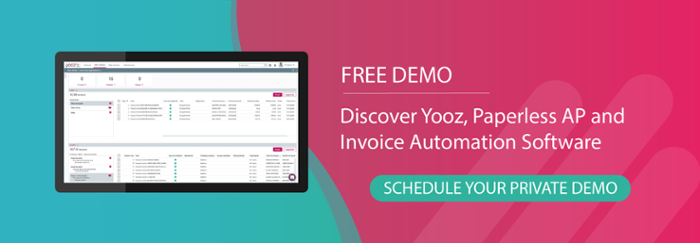Pulling off a construction project is similar to assembling a complicated puzzle; you select the right pieces that match together to create the whole. In construction that means that architects, engineers, and professionals of many trades have to come together to make it happen. Regardless of the company size or if the project is large or small, they all need to stick to detailed plans, dynamically react to changes, and solve unexpected constraints. Add in curveballs such as inflation, prices for supplies like lumber first skyrocketing and then plunging, or other job materials being in short term supply, and you get the picture.[1]
The bottom line is that a new building will only go up and be completed as planned if and when a lot of moving parts snap into place. Above all, information needs to flow freely between all parties involved and payments have to be made on time, every time in order to keep each module of the project going. That’s why the application of automation software - specifically constructions accounts payable automation - is so crucial for the building trades and all affiliated service providers.
A single, end-to-end construction accounts payable solution will save the entire team a significant amount of time and money - benefiting accounting to project managers and customers to individual vendors. It will help keep individual projects on track, provide information for ongoing planning, and ensure that suppliers are paid on time. Managing all this not only ensures increased financial stability for the contractor but also build their reputation and help establish important goodwill.
Unique Challenges in Construction Accounts Payable
Why are there unique challenges when it comes to construction (and therefore in construction-specific accounts payable)? That’s partially owed to the fact that the industry comes with its own sets of distinctive practices and challenges. Many times, paying invoices in the construction accounts payable workflow is linked to payments received for each individual contract. That means contractors don’t settle their bills until they receive payment from their customers. Delays or errors along this value chain can easily create a cascade of cash flow and revenue issues affecting multiple trades and suppliers: not an option if you want to be a success in the industry.
Most often, this tight interplay between inflows and outflows applies to direct costs for a project such as overhead and general business expenses. Therefore, it’s important to always have an up-to-date view into your accounts payable status to make sure you maintain a positive cash flow and, equally important, turn a profit.
Retention is another issue that’s unique to construction. A contractor or general contractor will routinely hold back money, often ranging from 5 to 10% of the total invoice amount, as long as the construction project is ongoing or until it’s almost completed. What’s an insurance policy for one company to make sure doors, windows, pipes or drywall are properly installed can create a serious cash flow problem for others downstream. Retainage, then, is another good reason why all parties in a construction project need to keep tabs on their AP workflow in a traditionally cash-poor industry.
How AP Automation Streamlines Construction Projects
There’s one more good argument why the construction accounts payable process needs to be digitized and automated: lien waivers. Those pesky documents by which a company waives the right to file a lien for a specific amount are the industry’s equivalent of a receipt for payment. It’s standard practice for a general contractor to request and collect such lien waivers from everyone involved on a construction site; not just subcontractors, but also materials suppliers and equipment rental companies. Whomever collects the waivers needs to track them and the amounts they specify.
No wonder that construction companies of all sizes have discovered a powerful tool that can help them manage all those tasks and save cost at the same time. Cloud-based accounts payable automation will capture, process, and expedite the review, approval and payment of invoices. Along the way, it helps with tracking and reconciling purchase orders, retention status, and lien waivers as they come in from a host of suppliers and subcontractors. In addition, the software is capable of generating reports and providing needed information at any time, quickly and concisely.
However, having fewer worries about cash management are only one benefit. AP automation also ensures you pay invoices on time, every time, keeping suppliers are happy and staying happy. Good supplier relationships are especially important nowadays, as ongoing materials shortages have made long-standing issues like theft and fraud only more pressing. When the supply chain is rattled, no one likes to wait for their bricks or rebar, holding up completion - let alone chase outstanding payments in order to make their payroll.
How a Platform for Construction Accounts Payable Works
A system such as Yooz is capable of multichannel invoice capture, regardless of the format in which they arrive: paper, fax, email attachment, or electronic and therefore structured format. If we’re talking about batches of invoices, the software will intelligently auto-split the documents. It’s one important step toward going paperless.
In the next step, robotic process automation and machine-learning algorithms will read and extract all key information from the invoices word for word, number for number. It will GL-code them and match each invoice to a PO or other relevant document, weeding out duplicates and erroneous submissions. Since it’s cloud-based, the platform has processed more than 100 million invoices in use by thousands of suppliers. That way, it’s able to decipher almost any invoice format and constantly learn.
The end result is straight-through processing that requires little to no human intervention. And one more thing that’s worth mentioning: the software performs full-text indexing so inquiries and audits only require a simple keyword search. The days of digging through filing cabinets for an invoice or receipt are over.
On-Site or Off-Site: Mobile Review and Approvals
The next step is routing supplier or subcontractor invoices for approval to the right people. Cloud-based means review and approval can happen from any device, anytime and anywhere - no matter if you’re sitting in a trailer on-site or standing high up on a scaffolding.
All documents you need to make an informed decision to approve and pay or drill deeper are just a few taps away, based on workflow rules and permissions that each company can set up and adjust according to their specific needs. Backlogs and delays are no longer an issue. Instead, processing costs per invoice drop by 80% and cycle times shrink from weeks to days.
There’s more good news. With construction accounts payable automation, late payments are a thing of the past, while all early-pay discounts are within reach. Additionally, the number of exceptions due to missing data, as well as errors and fraud attempts can be kept in check.
Finally, you can defuse the ongoing hassle of dealing with retainage and lien waivers by automating the payment part of the workflow. Onboard subcontractors or suppliers with a single email address and have them specify their preferred payment method once.
As for reporting, a cloud-based system easily stores all of the information in one location. No more sorting through various folders or programs when it comes to tax time or audits; all the information is there and accessible.
Hidden Benefits: Cash Back From Every Invoice
An intelligent platform like Yooz will make contractors and suppliers part of the business network around the project, always keeping them in the know about when to expect payment or when to furnish additional details that might have been missing. The only parameters to check for the AP team are invoices to pay, amount due, and payment schedule. With AP Automation, recurring deliveries to trusted vendors can be set up for secure and expedited auto-payment.
It’s one more example why a construction company should go for an intelligent AP automation platform as their foundation for growth.
Ready to get started?
FAQs
How does Yooz's accounts payable software cater to the unique needs of the construction industry?
Can Yooz's accounts payable software integrate with construction management systems and other software commonly used in the industry?
How does Yooz's accounts payable software help construction companies streamline invoice approval workflows and manage subcontractor payments?
Can Yooz's accounts payable software help construction companies track project costs and manage budgets effectively?





